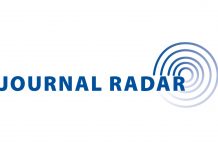Please give us a global perspective on the results of global ALEX. Will alectinib definitively displace crizotinib or ceritinib as the first-line treatment for ALK-rearranged non-small cell lung cancer (NSCLC)?
The rapid pace of development of ALKtargeted therapies in NSCLC in the last decade has transformed outcomes for patients with ALK-rearranged NSCLC. Crizotinib, the first in class ALK inhibitor, was approved for ALK -rearranged NSCLC on the basis of phase I and II data in 2011 and established as optimal first-line therapy for newly diagnosed ALK-rearranged NSCLC compared with chemotherapy in 2014 by the PROFILE 1014 study. Ceritinib was also shown to be another option for treatment for ALK-rearranged NSCLC given its superiority to chemotherapy demonstrated in the ASCEND-4 study. The global ALEX phase III study represents a major practicing-changing advance setting a new international standard for the first-line treatment of ALK-rearranged NSCLC.
ALEX is a well-designed and conducted study that unequivocally demonstrated the superiority of alectinib over crizotinib, the previous standard first-line therapy. Efficacy was superior with alectinib not just in terms of progression- free survival (PFS) but also in terms of CNS activity. PFS was superior for alectinib over crizotinib with a hazard ratio of 0.47–a hazard ratio similar in magnitude to the PFS benefit of crizotinib over chemotherapy. In addition, alectinib was highly active in the CNS, both treating established metastases and by preventing CNSprogression. Notably this efficacy is associated with a favorable toxicity profile.
Of note, ALEX was not the first study to examine the efficacy of firstline alectinib. The remarkable efficacy of first-line alectinib was reported in the Japanese phase 1/II study (AF-001JP) and confirmed in the J-ALEX study, but the applicability of these results outside the Japanese population was not established until global ALEX was reported. The ALEX study unequivocally establishes alectinib as a superior option for the initial treatment of patients with newly diagnosed ALK-rearranged NSCLC worldwide and indicates that if alectinib is available it should be used as first-line treatment instead of crizotinib. While there is no direct comparison with ceritinib, the efficacy and safety profile of alectinib over ceritinib again suggest that alectinib is to be preferred
Unfortunately, as is the case for other tyrosine kinase inhibitors (TKIs), resistance to alectinib will remain an issue. We will continue to need to develop drugs such as lorlatinib that can target mechanisms of resistance to alectinib and to identify alternative strategies to delay or prevent emergence of resistance to ALK TKIs to further improve outcomes for ALK-rearranged NSCLC.
What are the cost considerations when it comes to these highly specialized TKIs?
Timely and equitable access to highly effective therapies for lung cancer and other diseases remains a major issue worldwide. Delays in drug approval and reimbursement lead to global disparities and indeed inequities in access to effective treatment. Cost considerations are significant–TKIs such as crizotinib, ceritinib, and alectinib can cost patients between $5,000 and $15,000 per month.
In many parts of the world delays in approval can mean that these costs need to be born by patients and their families–meaning that patients may have to resort to crowd funding, risk financial difficulties or perhaps not have access to drug.
Do you think we can get by on 300 mg BID as employed in the J-ALEX trial? Or should we stick with 600 mg BID?
In the J-ALEX study a dose of 300 mg BID, the approved dose in Japan, was used in contrast to the dose of 600 mg BID used in the global ALEX study. This reflects peculiarities of dosing for Japanese patients where dose escalation in the Japanese phase I study (AF -001 JP) was limited to 300 mg BID due to maximal concentrations of sodium lauryl sulfate indicated by Japanese regulatory authorities. Data indicate that plasma levels of alectinib in Japanese patients treated on 300 mg BID are similar to those seen with 600 mg in Western patients. There are concerns that there may be variability in drug levels achieved with doses less than 600 mg in Western patients. On this basis, outside Japan (or perhaps outside a Japanese population) the standard dose should remain 600 mg BID.











